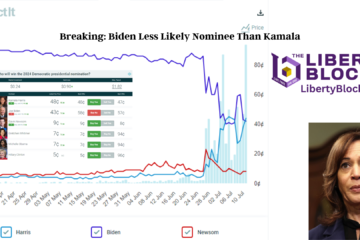On Thursday, May 30th, two thirds of the New Hampshire Senate followed the House’s lead and voted to override Governor Sununu’s veto of the death penalty repeal bill. Currently, 25 states and the military punish people by killing them. While many believe that a person who willfully kills another person should be killed, an increasing amount of people seem to be losing confidence in the government, causing them to doubt whether such a corrupt and incompetent entity should be entrusted with employing the most permanent punishment imaginable in regards to justice.
My Evolution On Capital Punishment
Raised as a conscientious conservative who was supportive of strict rule of law (yet skeptical of big government), I always felt that the use of the death penalty was appropriate for the most heinous of crimes. However, the age of technological accountability (internet, smart phones, social media, etc.) and learning about the criminal justice system’s many irreversible mistakes have caused me to evolve on this issue, resulting in a complete reversal of my opinion. Simply put, I would not trust the government (including federal, state, or city/town governments and including the courts, prosecutors, judges, police, and legislators) to tie my shoes, let alone determine who deserves to be killed. Additionally, I do not trust juries – which are often referred to as ‘12 people who are too dumb to get out of jury duty’.
Wrongly Convicted – Forever
Though it is a terrible tragedy when an innocent person is wrongfully convicted by reckless or evil government officials, no legal punishment is quite as permanent as execution. William Blackstone famously said that “It is better that ten guilty persons escape than that one innocent suffer.” That same sentiment has been echoed by Benjamin Franklin and may be the foundation for the presumption of innocence that this nation is supposed to guarantee to all suspects. However, people have been wrongly convicted and sentenced to death, only for society to realize the mistake after the irreversible deed had been done. It may not be possible to determine whether technology will make courts increasingly accurate and accountable or whether corruption, partisanship, and authoritarianism will fuel judicial corruption, but we do know that modern judges remain corrupt and willfully withhold evidence that does not align with their predetermined ruling.
Financial Analysis
Among the arguments in support of the death penalty is the fiscal component. Many people believe that punishing taxpayers by making them pay thousands of dollars per year to keep each convicted criminal alive in prison is a ridiculous response to a murder conviction. Furthermore, they contend that putting a bullet in the killer’s head could cost less than one dollar. Contrary to popular belief, government executions actually cost much more than life in prison. This seems to be primarily due to the expensive, inefficient appeals process that people sentenced to death naturally pursue. In a world in which justice was 100% infallible, government was efficient, and politicians were angels, capital punishment might be beneficial for society. However, in 2019 on planet Earth, if taxpayers are looking to save money, they should oppose capital punishment.
The Death Penalty Repeal Bill
House Bill 455 passed the New Hampshire legislature with large majorities, causing the State’s death penalty to hang ultimately on the Governor’s signature. Sununu vetoed the bill, but his veto was overridden by a two thirds majority in the House last week and a two thirds majority in the Senate on Thursday, causing the State’s capital punishment to be abolished.

Currently, the New Hampshire government executes criminals when they are convicted of one of seven specific crimes, all of which involve murder. Many Americans (including a few members of The Liberty Block staff) do generally believe that people who kill others should face the same fate. However, the bill’s major opponents seem to be New Hampshire conservatives who want the government to preserve the practice of killing those who kill police officers or government employees within the criminal-justice system. The bill’s opponents are well aware that the only person currently on death row in New Hampshire is a man who was convicted of killing a police officer. Further demonstrating that the primary reason for capital punishment is to kill those who kill police, Governor Sununu vetoed HB455 while surrounded by police officers and condemned the legislators for disrespecting police in his post-veto video interview. Is it more evil to kill a police officer than it is to kill a person while raping them? If you didn’t know better, you might not know that killing a police officer is only one of seven crimes that were punishable by death in New Hampshire.

Conclusion
If a person were convicted of murder and if it were somehow 100% clear that they committed the crime, they should be killed, many people would understandably argue. I do not necessarily disagree with those who would make such an argument. However, massive amounts of research, life experience, and introspection have caused me to distrust the government too much to entrust them with the power to execute citizens. Capital punishment is expensive, slow, and wielded recklessly by the criminal justice system enough to justify its repeal. And two thirds of the New Hampshire House – the most representative legislative chamber in the United States – agrees with me.


